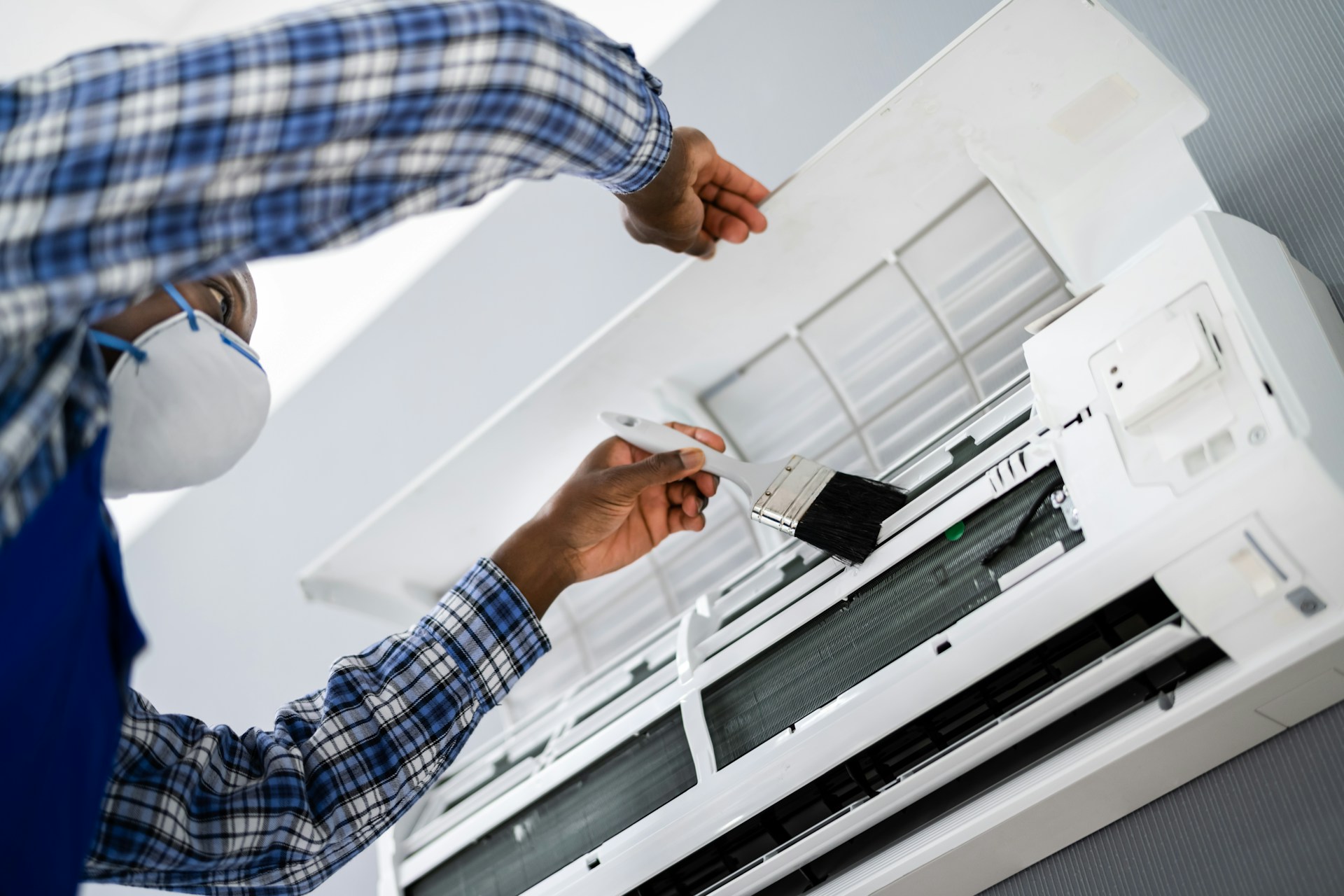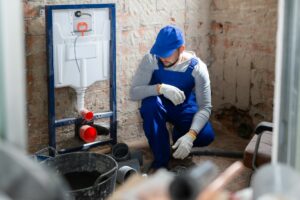Property managers face all kinds of repair jobs, but HVAC failures often top the list when it comes to stress levels. That’s because AC units and heating systems rarely break down at convenient times. The worst part? This usually happens just as the weather hits an extreme – either during a summer heatwave or in the middle of a deep cold snap – when tenants are least able to cope without it. These failures aren’t just uncomfortable for tenants. They can damage your reputation if they’re not sorted quickly.
Keeping HVAC systems running smoothly all year long takes some preparation, quick thinking, and access to reliable help. Whether it’s a total breakdown or a system blowing out warm air when it’s meant to cool things down, the ability to act fast matters. Getting familiar with the types of problems that happen during peak seasons, and knowing what steps to take next, can really make all the difference in how repairs are handled and how long tenants are left in the lurch.
Understanding Peak Seasons And HVAC Stress
HVAC systems do a solid job most days, but they’re pushed to their limits when temperatures soar or drop. These peak seasons – typically summer and winter – are when demand spikes. As the temperature rises in August, AC units are firing almost constantly. That ongoing use wears out components fast, especially if the system hasn’t had a recent tune-up.
Summer and winter push systems harder because they have to maintain indoor comfort while battling extreme outdoor conditions. When you think about it, it’s like asking a car to run all day without breaks. It’ll overheat, parts will strain, and eventually, something gives way. It’s during these periods that you’re more likely to get panicked tenants calling about ACs blowing warm air or heaters that have just stopped working.
Here are a few common causes of HVAC breakdowns during peak seasons:
- Clogged filters: Dirt and dust block the airflow, which makes the system overwork and overheat
- Refrigerant leaks: If your coolant is low or leaking, the unit can’t cool properly
- Worn out components: Parts like capacitors, fans, and compressors wear down quicker during high usage
- Poor ventilation: A blocked or outdated duct system will reduce your system’s efficiency and cause overheating
- Electrical issues: Voltage spikes in hot weather can trip breakers or fry components
Being aware of what tends to go wrong during these seasons lets you plan around it. Some problems are just bad luck, but many can be avoided or at least caught early through regular checkups. The last thing anyone wants is scrambling for help on a weekend when contractors are already fully booked with emergency jobs.
Preparing For HVAC Failures
Rather than waiting for something to go wrong, it’s better to put systems in place early. Preventive planning can save a lot of hassle down the line, and it often starts well before the busy season rolls around. The goal should always be to catch small issues before they grow into bigger, more expensive ones.
Here are a few ways property managers can stay ahead of HVAC failures:
- Schedule pre-season checkups: Book HVAC servicing right before summer and winter. Contractors tend to be more available during quieter periods, and they can tune up units to prep them for harder work ahead.
- Keep a simple maintenance log: Record when filters have been replaced, when the system was last inspected, and any early signs of wear mentioned during routine visits. It helps spot patterns and avoid repeat problems.
- Create a go-to contractor list: Don’t wait until you’re in a rush. Build a list of trusted HVAC professionals you can contact quickly. Make sure they’re experienced with multi-property support if you manage multiple sites.
- Talk to tenants about early warning signs: Encourage tenants to report changes in airflow, strange smells, or new sounds. Even a slight shift in AC performance could point to something bigger looming.
- Check rooftop or outdoor units more often: These are more exposed to the elements. Heat, rain, or even fallen branches might block or damage parts, impacting performance when you least need the added hassle.
When HVAC systems fail at the worst possible moment, it’s often because no one was really looking. Getting ahead of problems while things are still working not only keeps tenants more comfortable, it saves you emergency callouts and angry phone calls. Preparation is one of the easiest ways to protect the health of your equipment all year long.
Immediate Steps During An HVAC Failure
When an HVAC system has problems, acting quickly to identify the issue can make a huge difference. Begin by checking the thermostat settings to ensure they’re correct. Sometimes, something as simple as a mistakenly switched setting can be the root of the problem. Ensure there’s power going to the unit by inspecting the circuit breaker and checking for any tripped fuses.
Next, inspect the air filters, as clogged ones often cause airflow issues. If you’ve recently replaced them, move on to listen for unusual noises coming from the unit that might indicate mechanical issues, like worn-out parts or loose components. If these basic checks don’t reveal the cause, it’s clear that professional help is needed.
Reaching out immediately to a trusted HVAC contractor is important, particularly during peak times when their availability is limited. Make sure to contact ones you’ve previously vetted, as their familiarity with your system can lead to swifter restoration. Even if the failure seems minor, timely repairs by experts prevent further complications, like strain on the rest of the system, which might lead to more costly repairs.
Using Contractor Directories Effectively
Having a reliable contractor directory at your fingertips is a must-have for property managers dealing with HVAC troubles. Directories offer a structured way to locate and assess local professionals, which is helpful when you’re in the middle of a crisis. You can look up qualified HVAC contractors by skill set, location, and availability.
To get the most from these directories, use filters to narrow down your choices to contractors experienced in HVAC systems relevant to your properties. Make sure they’re well-reviewed by previous clients. This step helps uncover their reliability and quality of work.
Checking whether contractors are licensed and insured is another important step. This ensures any work is compliant with regulations, which reduces the risk of future issues. Choose a few top choices and save their profiles for quick access in future emergencies. By building a list this way, you create a network of dependable professionals ready to step in when needed.
Planning Today for Fewer HVAC Headaches Tomorrow
Dealing with HVAC failures doesn’t need to be a headache for property managers. By preparing ahead, understanding common issues during peak seasons, and knowing exactly what to do when trouble strikes, you can minimise disruption for tenants and make sure issues are resolved quicker.
Keeping HVAC systems well-maintained and responding fast when problems crop up shows good planning and care. Using contractor directories smartly also helps you find skilled professionals when you’re short on time. Having strong working relationships in place makes your response smoother and strengthens your tenants’ trust in your management. That kind of confidence goes a long way in keeping things running, no matter what the weather throws at you.
To manage HVAC issues more smoothly and keep your properties running without disruption, it helps to have trusted professionals on standby. Prestige Contractors UK makes it simple to connect with experienced contractors for property managers who understand the urgency of prompt, reliable support. Be ready for whatever the season brings by building your go-to network today.




